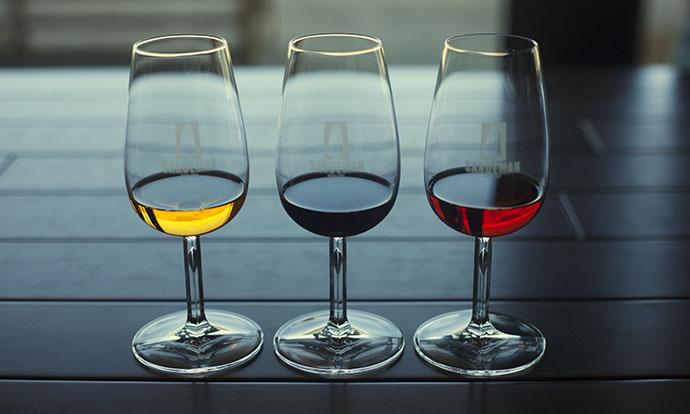Teenage Drinking - Ban It or Tolerate It?
- Wednesday, 06 May 2015 18:42
- Last Updated: Thursday, 07 May 2015 08:19
- Published: Wednesday, 06 May 2015 18:42
- Joanne Wallenstein
- Hits: 7045
 "For every prohibition you create, you also create an underground" --Jello Biafra, Dead Kennedys
"For every prohibition you create, you also create an underground" --Jello Biafra, Dead Kennedys
Our teenagers are growing up in a culture of alcohol consumption. With the legal drinking age of 21, binge drinking prior to going out for the night has become the norm, in my town beginning as early as in ninth grade. As one who dislikes both the taste of alcohol and the loss of control associated with inebriation, I personally have difficulty understanding this teen obsession; I suspect it is a combination of wanting to fit in with one's peers, rebellion and incomplete myelination of the evolving brain. While certainly not all teenagers consume alcohol, a great number of parents whose mantra is "not my child" are nothing short of delusional; a recent study reports that 86% of our youth admit to trying alcohol prior to age 21.
I allow – no, I tolerate my teenage children's alcohol consumption. While I make it clear to them that I am not condoning their drinking and that it is, in fact, illegal outside of our home, I have made a "one drink" deal with them; they can have one alcoholic beverage as long as they are not driving. This contract also includes a discussion of the myriad risks associated with drinking, and the statement that I prefer they opt out.
I suggest to them the alternative of drinking non-alcoholic beverages out of the ever-popular, alcohol-indicative red plastic solo cup, (mis)leading other teens to assume that alcohol is contained within. Having once (long, long ago) been a teenager myself, I understand the potentially overwhelming peer pressure experienced by a group whose main objective is often to conform. Truly, one would hope that our children have the inner strength to resist negative peer group influences, but let us not deceive ourselves – clearly that is frequently not the situation, as our town ambulances make regular excursions to the emergency room to deliver dangerously impaired high schoolers. My community is not alone in its transgressions; studies report that nearly 200,000 underage drinkers are seen in emergency rooms across the United States each year.
Has my approach been a success? I attended a tenth grade parent meeting, organized by the local high school and moderated by a trained counselor. I was clearly the exception surrounded by a majority who espoused that we must maintain zero tolerance for alcohol use by our children. With my one-drink approach, I have been able to maintain open lines of communication with my own tenth grader by reaching this agreed upon compromise. She feels comfortable confiding in me both her actions and those of her counterparts; as such, I knew which parent group members had offspring who drank regularly, while they vehemently disagreed with me and staunchly declared that prohibition was the only option.
I did not pay a return visit to that circle, and yes, I feel confident that mine was and is an infinitely more effective approach. It is said that "knowledge is power," and safety is of paramount importance – my children do not hide their activities, legal or illegal, from me, leaving me poised to help them, if need be.
Alcohol was not presented as the "holy grail" in our home. When adults had a glass (or in my case, a taste) of wine, our children were allowed as well. Our hope was that we could demystify alcohol, and when our daughters and son went to college, they would be less likely to become uncontrollably immersed in the pervasive drinking culture. I believe we have succeeded; our children are emerging from their teen years relatively unscathed, in contrast to several of their friends. Not long ago, I received a 1 a.m. phone call from my then 17-year-old college freshman daughter who accompanied her unconscious friend and EMS to the emergency room after this friend, out with others indulged/overindulged in alcohol for the first time. It became incumbent upon my terrified, (sober) daughter not only to call 911, but also to telephone her friend's parents and ask them to travel to the hospital to make necessary medical decisions for their daughter. I was later told that my child's friend's parents were of the zero tolerance belief, and they were ultimately told their daughter unknowingly consumed alcohol when her drink was spiked. The deficiency in honest family communication was perpetuated.
Is my way the only way? I do not believe so – each young adult and each family dynamic is different, and what works for one cannot necessarily be generalized. I am, however, confident that one must take a frank, unbiased look at one's children, with whom it is imperative we have meaningful, direct and ongoing dialogue. As parents, we need to look at the greater framework in which our youth exist and understand the roles that immaturity and peer pressure may play.
Statistics support that the "not my child" view is disproportionately incorrect – when it comes to teenage drinking, it is much more likely to be your child than not. It is my opinion that this self-delusional perspective, in combination with an inflexible zero tolerance policy, prevents candid discourse and may endanger one's child. And so, I defend my choice to sit with my children as we all enjoy a glass (or sip) of wine.
this article originally appeared on the parenting blog, Grown and Flown.














